If you find yourself asking, “Can I find an OCD Specialist near me?” the answer is not always easy. Identifying credible OCD specialists is always a challenge, no matter where you live around the world. Within the professional OCD community, there are a variety of accepted credentials, certifications, and ways to demonstrate competence in the assessment, diagnosis, and treatment of obsessive-compulsive disorder and its related problem areas.
Finding Treatment
1
Make sure the person is a licensed mental health professional, which would include credentials such as Ph.D., Psy.D., or Ed.D. if they are a licensed psychologist. LPC, LCSW, LMFT if they are a Master’s level licensed mental health provider. M.D. or D.O. if they are a physician licensed to treat. If they do not possess any of these licensed credentials they are unlikely to have the minimum requirements to provide the services you are looking for.
2
Some OCD specialists are still “in training,” which means not licensed yet, and are being supervised by licensed mental health professionals. This is true for our team and other teams like ours (Atlanta Anxiety Specialists is dedicated to training and supervising more junior therapists to increase the availability, accessibility, and affordability of treatment). In these cases, the credentials and qualifications of the supervisor AND the trainee are very important to better understand whether the therapist-in-training is provided adequate oversight and support to offer evidence-based treatment.
3
With regard to the actual treatment, the therapist should have knowledge, training, and experience with Cognitive Behavioral Therapy (CBT) and Exposure and Response Prevention (ERP). If the therapist has little to no knowledge of these areas, they are unlikely to be an OCD specialist. However, if they are medication-only providers they should be knowledgeable of the current medication options that are FDA-approved for OCD.
4
It is absolutely within your rights to interview a therapist (within reason), review their website or online information, and ask them questions about their background, experience with treating OCD, and knowledge of the scientific literature. This information is a primary component of the beginning phase of any OCD treatment. If the person you’re interviewing can’t (or won’t) answer some of the basic questions you have, or he/she has little knowledge on the subject, it is unlikely that they are prepared to offer more in-depth psychoeducation to you during the course of treatment. This is a problem since education about OCD and its treatment components is a key ingredient to the first phase of OCD treatment.
5
Although it’s not a requirement, it is also possible to see if the provider is affiliated with a national OCD, anxiety, or CBT organization (e.g., IOCDF, ADAA, ABCT). They might also have specialty training (e.g., BTTI from the IOCDF) from a credentialed organization or from a seasoned OCD specialist. Specifically for OCD, you can ask about this as well to better understand their professional background and training.
6
Given that the primary mission of an OCD specialist is to help the OCD sufferer learn to live with anxiety, stay with discomfort, and be OK with uncertainty, it is important to know that if the therapist tells you that his/her “primary” goal for treating OCD is to take away your anxiety, or to teach you relaxation techniques, teach you to stop worrying, or to teach you simply how to ignore your obsessions, they are suggesting a treatment philosophy that is poorly aligned with best practices. With the research and science behind exposure therapy, this is not consistent with the gold standard of treatment for OCD or other anxiety disorders.
The clinical team at Anxiety Specialists of Atlanta always offers free, brief consultations (usually about 15 minutes) with our therapists for anyone interested in asking questions about our background, or anything about anxiety or OCD, whether you are wanting to be seen by us or simply needing to learn about treatment options in your region. For many of our inquiries, a brief chat with our practice manager or a review of our website and our bios can answer many of the questions or concerns raised above. You’re always welcome to reach out to us if you have any questions.
You should also visit recognized, national nonprofit organizations’ websites. These nonprofits offer Therapist Directories to help find local “OCD specialists near me,” and providers who specialize in treating OCD and anxiety disorder using exposure therapy, or providing Cognitive-Behaviorally Based Services for anxiety and OCD.
Some nonprofits to consider are:
International OCD Foundation – Under the “Find Help” tab for OCD Specialists affiliated with the IOCDF
Association for Behavioral and Cognitive Therapies – Find a CBT Therapist affiliated with ABCT
Anxiety and Depression Association of America – Find an anxiety therapist affiliated with ADAA


